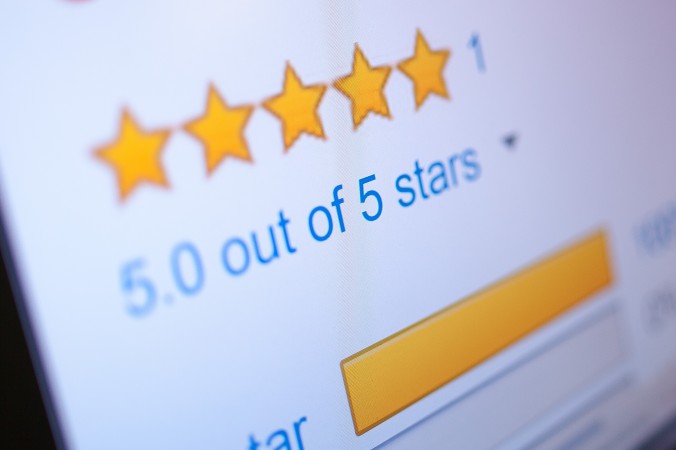They say word of mouth is the most efficient way to spread consumer opinion about a product, but in the digital age, this is slowly passing the torch. Now that we have a tiny box called a smartphone that can tell us anything and everything at the tap of a finger. There is no reason to shop at a boutique with bad sales people, eat mediocre food, or sleep in a hotel that has ever had bedbugs, right? People can easily read reviews to ensure that this does not happen. Smartphone and website applications such as Yelp, Trip Advisor, Amazon, and even Facebook make it easy for both satisfied and displeased consumers to publish their opinions to the web, designed to inform and assist prospective consumers in choosing the best services and products. However, this can be a double edged sword for some businesses, as unlimited feedback can result in making or breaking a company’s reputation.
Review sites are a platforms that allow customers to express opinions about a particular restaurant, store, hotel, or other type of business for other internet users to see. These are becoming increasingly easy to use, and therefore increasingly popular. When ordering an item from Amazon, reading the reviews can be imperative to ordering the correct size or style to meet specific needs. When looking to try Indian Cuisine for the first time, reviews can be important to decide on an authentic restaurant with fair prices. According to BrightLocal’s consumer survey, 74% of people believe that having positive reviews makes them trust a business, so if a particular place has shining reviews on their page, it is almost sure that business is booming. On the contrary, isolated incidents or small mistakes that angered a customer all the way to Yelp reviews can be the first step to a swift downfall.
When a smartphone user is traveling or looking for something new, sites like Trip Advisor can be key to searching for a business that is perfect for specific needs. If a person is trying to be frugal, these sites can help them find the “best bang for their buck” within a few miles of their current location. Everyone is guilty of doing some research for “best chicken parm in New York City” and trying out the first menu that is shown on their iPhone screen, but there are extensive weaknesses that come with such a technology.
The major flaw in the concept of sites that allow free flow of reviews is that they ignore the fact that every person is entitled to their unique opinion. It is human nature to “judge a book by its cover” but when it comes to online reviews, consumers are surrendering to the influence of people they have never even met and according to BrightLocal, 84% of people trust them just as much as a personal recommendation. A reader does not know the personality, mood or taste of the reviewer, therefore the reader could be influenced by misinformation stemming from an emotional customer, rather than legitimate experience that would have resulted in an opposite experience. For example, a person researching reviews for hotels could decide against one after reading a negative review about the indoor pool not being clean – but unbeknownst to the reader – the reviewer was a total germaphobe.
A company with a strong Marketing and Human Resources team can normally defend itself against unhappy clients. There will always be dissatisfied clients, but it’s about how the company reacts and attempts to fix things that keeps their image positive. With free flow of customer opinions over the internet, companies are at the mercy of accusations, negative reviews and unhappy customers. Firstly, they would have to go out of their way to view the negative connotation pertaining to their company. Also, their arguing with consumers via internet comments could be looked upon as unprofessional and even nasty when it comes to the public eye.
On the contrary, companies can bribe customers to write positive reviews even if they had a bad or average experience. For example, at many restaurants, a customer must like the company Facebook page before they can access free wifi or waitresses will offer a free drink for anyone at the table that can present a positive Yelp review. 7 out of 10 people surveyed will leave a review when asked. This means that even some positive reviews are giving customers the wrong idea about a company and affecting business positively, when in reality, some changes may be necessary. Amazon recently banned customers from accepting money for reviews. The team at Amazon understands that people will write positive things for a bit of bribery, so they are stopping this problem in order to have raw, real reviews of their products. Hopefully, other review sites will follow in these footsteps and control comments in order to save certain business reputations.
Consumer survey and review websites are changing the way consumers select who they do business with as a whole. Whether reviews are positive or negative, they will take part in the company’s public reputation and persuade them when it comes to where new customers will take their business. Review sites can be a double edged sword for businesses; a positive business review can generate unlimited business, but a negative review from an emotional customer can deter possible customers from ever trying something new.
When looking for a new place to visit, make sure to read carefully and weed out bogus comments on review websites. Read as many reviews as time allows and take note of whether they were all in a certain timespan. Also, owners and employees change often (especially if customers are unsatisfied) so sometimes it is worth it to give a business a chance despite a few bad reviews. In conclusion, personal experience is the best indicator of how successful a business deserves to be; maybe even write a helpful and detailed review of your own!
Written By: Alex Goldfarb

